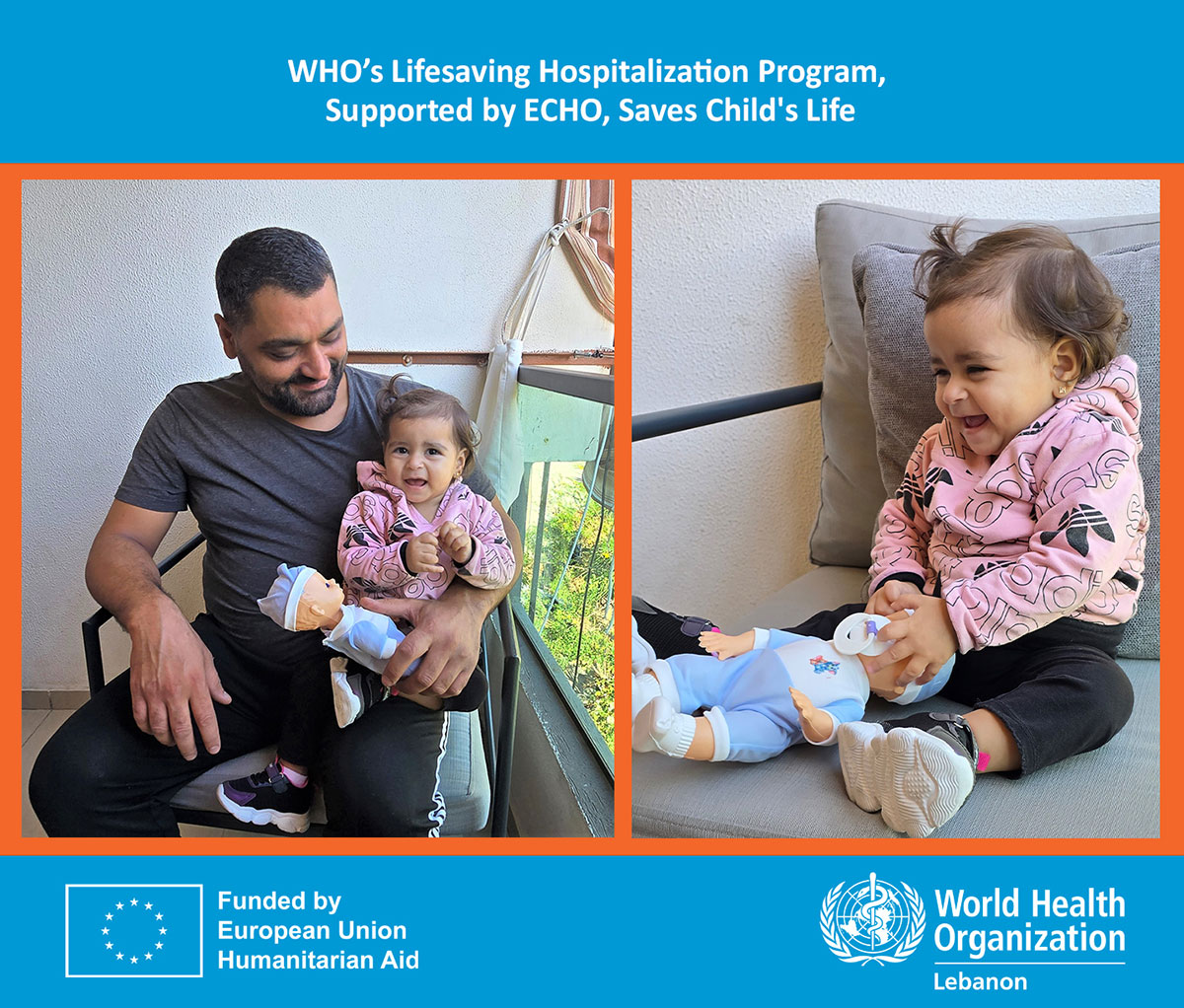Her treatment involved an urgent course of intravenous immunoglobulin, the cost of which was far beyond her family’s financial means. Heaven’s father Ahmad is unemployed, her mother is pregnant, and her grandparents live with them in a rented apartment. They could not afford the treatment needed by their daughter. Fortunately, a neighbour in their community had heard about WHO’s lifesaving and limb-saving hospitalization programme which helps increase access to care, reduce morbidity and mortality and prevent people falling into poverty as a result of health care expenditures. The programme is made possible through the financial support of the European Civil Protection and Humanitarian Aid Operations (ECHO). The neighbour encouraged the family to go to Sibline Hospital to see if the programme could cover their daughter’s treatment.
Heaven’s father asked the hospital if they could apply for assistance. He was referred to the team managing the lifesaving and limb-saving hospitalization programme and soon received good news – the programme would cover the cost of the immunoglobulin injections. By the afternoon, Heaven was receiving treatment.
“Without this support we could have lost her. They were very helpful and even kept asking about our daughter’s health after she was discharged. I was lost, and then people came together to help,” says Heaven’s father.
The lifesaving and limb-saving hospitalization project not only provides critical support, it fosters hope, trust and solidarity within communities during the most difficult times.








 17 November 2024, Beirut, Lebanon – Heaven, a 14-month-old toddler, was admitted to hospital on her first birthday. Suffering from bouts of vomiting, diarrohea and high fever, Heaven was taken by her parents to the Sibline Governmental Hospital where she was diagnosed with incomplete Kawasaki disease, a rare but serious condition that can lead to heart complications if left untreated.
17 November 2024, Beirut, Lebanon – Heaven, a 14-month-old toddler, was admitted to hospital on her first birthday. Suffering from bouts of vomiting, diarrohea and high fever, Heaven was taken by her parents to the Sibline Governmental Hospital where she was diagnosed with incomplete Kawasaki disease, a rare but serious condition that can lead to heart complications if left untreated.